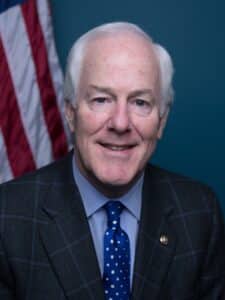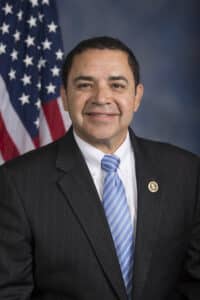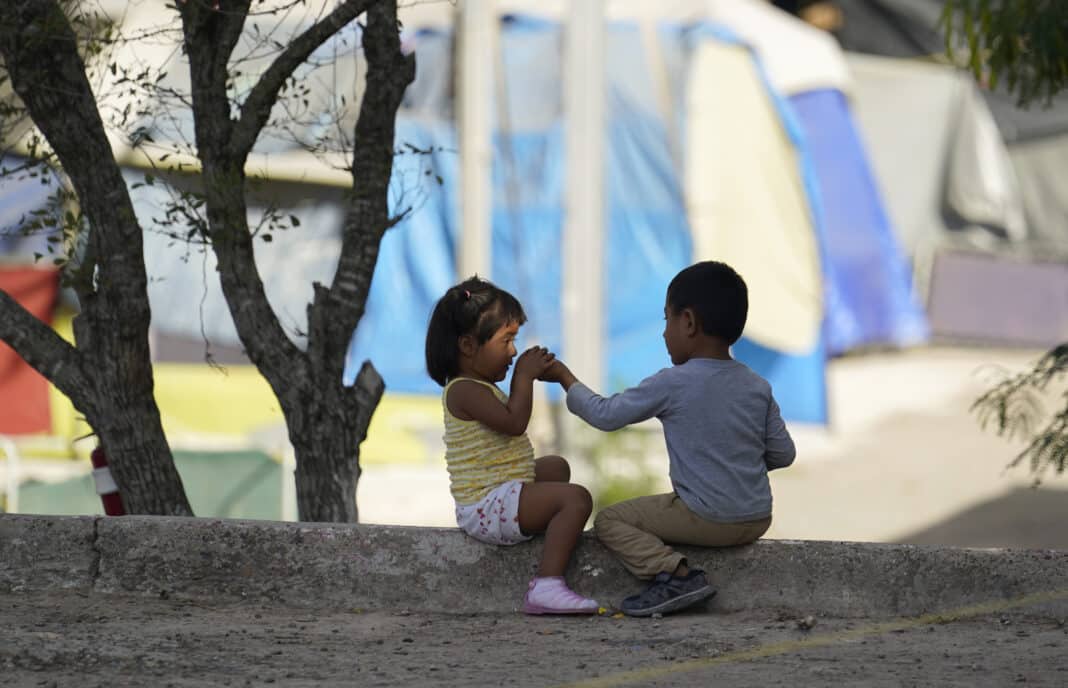
Sen. John Cornyn and U.S. Rep. Henry Cuellar will reintroduce legislation that if passed will allow unaccompanied migrant children to skip to the head of the line and make their case for asylum before an immigration judge while they’re still in federal custody — as opposed to the current practice that takes months or years.
Cornyn discussed the reintroduction of the HUMANE Act of 2019 during a conference call Thursday in which he also announced he and Cuellar would be touring a migrant youth holding facility in Carrizo Springs, Texas, and then meeting with federal authorities and local stakeholders in Laredo on Friday.
“This is something that I think is a really important part of a way of addressing this problem, and I worry that administration officials when they go to the border, they don’t even talk to the local border communities or the officials or stakeholders there to talk about the impact of this influx of humanity and the impacts it’s having on our border communities,” Cornyn said.

The senator appeared to lament the fact that Department of Homeland Security Secretary Alejandro Mayorkas did not meet with local officials during his visit to South Texas this weekend, which included a stop at a U.S. Customs and Border Protection tent facility in Donna.
“I’m sorry they did not talk to the local stakeholders, the mayors, the county judge and other officials about what the impact on our border communities is, because I know it’s dramatic,” he said.
Cornyn also announced he sent a letter to Mayorkas on Thursday, urging DHS to quickly vaccinate all of its federal employees amid the recent migration surge along the southern border.
“As you can imagine, they are at significant risk of contracting COVID-19 during their work with detaining vulnerable populations,” Cornyn said. “We know more than 8,000 CBP employees have tested positive for COVID-19 and 27 have died since the start of the pandemic — and 2,800 of those 8,000 positive tests have been in Texas.”
Cornyn said he was concerned about capacity issues at facilities operated by U.S. Border Patrol, CBP and U.S. Health and Human Services. Issues that are forcing authorities to keep migrant children in custody for more than the allowed three-day period and releasing others into the interior of the country with only a notice to appear.
“Part of the problem we have now is that the capacity of Border Patrol, CBP and HHS are just being overwhelmed by the numbers, and in order to try to cope with that, what they do is, after they process migrants through Border Patrol and HHS custody, then they place — in the case of children — these children with sponsors in the interior of the country and give them a notice to appear at an immigration court hearing sometime in the future,” Cornyn said, noting there is a backlog of about 1.2 million immigration cases.
“We think a better way to handle this would be to move particularly unaccompanied children up to the head of the line, so when they’re in HHS custody, they get the opportunity to appear before an immigration judge right away,” he added.
In the Rio Grande Valley, capacity has been reduced to about 700 detainees, but The Monitor recently reported that there were more than 3,000 people in custody as of Monday, and more than half of them were children.
Part of the problem is that CBP’s Ursula holding facility in McAllen, which had a capacity to hold 850 people, was closed in November for remodeling purposes. The facility made national headlines almost three years ago when pictures of children in fenced enclosures there began to surface.
The temporary closure, coupled with the recent surge in migrants and the threat of COVID-19, has forced federal authorities to transport migrants to other parts of the state.
“The recent surge has overwhelmed CBP’s processing capacity in the Rio Grande Valley, forcing CBP to bus unaccompanied minors to Laredo and Del Rio, and fly family units to El Paso,” Cuellar said in a news release Thursday.
Cornyn appeared to indicate there wasn’t much else federal authorities could do, given the current situation.
“We’ve seen this move before, in some respects, but this is even worse because of COVID-19 and obviously you can’t socially distance in overcrowded facilities, but I’m not sure what choice the federal government officials have,” he said, “and that’s why I’m going to be traveling to Carrizo Springs to one of those facilities.”
That facility was opened for about a month in summer 2019, but it was abruptly closed after a public outcry of the federal government’s detention of children.
“I think there’s also the issue of the adequacy of the facilities to keep people while they’re being processed, and that’s why you’re seeing not only places like Carrizo Springs open up, but even some discussion about opening up military bases in Virginia and elsewhere — so people can be processed because the numbers are overwhelming the capacity of the facilities and the personnel at those locations,” Cornyn said.




